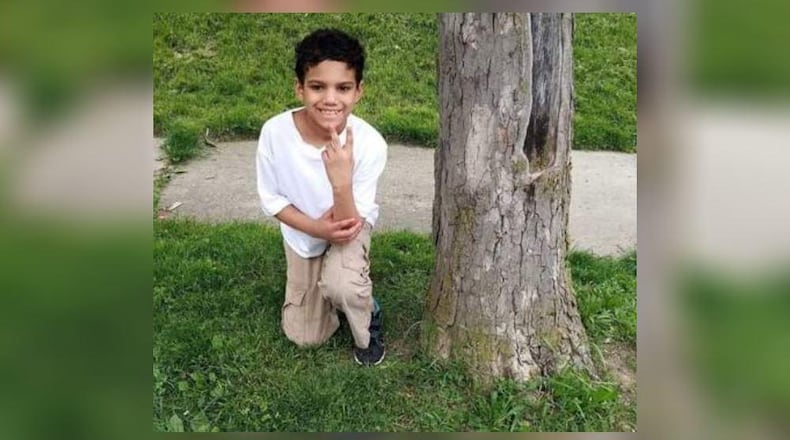“The death of Takoda Collins was truly tragic for our community and Montgomery County deeply mourns the loss of his life,” Associate Director for Children Services Craig Rickett said. “We will honor his spirit by continuing the careful review and enhancement of our child protection policies and procedures in order to protect the future of our children.”
It also motivated Ohio Rep. Phil Plummer, R-Butler Twp., to introduce a bill that seeks to reform the way county children’s services operate. Plummer called Takoda’s death horrific and said that he looked into the circumstances around his death.
“I saw the holes in the system and the abuse that kid suffered, we just cannot let that happen again. It’s just a tragedy,” he said.
Ohio House Bill 4 will create an ombudsman office to oversee children services, create a mandate that county offices create a memorandum of understanding of their obligations that the state must approve, mandates that children services must disclose their reports to the local, state or federal government entity, that county children services offices must follow up with reporters to let them know their concerns were investigated and it allows a juvenile court judge to order an interview or investigation when a parent refuses access to a child.
The bill has passed the House and Senate committee and is a priority for the legislature, Plummer said.
Takoda died in December 2019 after his father, Al-Mutahan McLean, called authorities to his Kensington Drive home in Dayton and reported that his son was unresponsive. Takoda later died at Dayton Children’s Hospital.
Authorities immediately launched an investigation that found that Takoda was tortured by his father for years. They say he was locked naked in an attic, beaten and emotionally and physically abused. In court records, police said Takoda was forced to stand bent over and cross-legged for long periods of time and received a beating by McLean if he stopped.
The Montgomery County Coroner’s Office ruled Takoda died of blunt force trauma in combination with compressive asphyxia and water submersion in a bathtub.
“This was a horrendous case,” said Lynda Dodd, who prosecuted the case. “This child endured years of ongoing, ceaseless, unimaginable torture. For both of these defendants to be headed to prison .... that’s a significant step. They both belong in the penitentiary.”
A Dayton Daily News investigation uncovered that police were called to Takoda’s home multiple times before his death. Records showed that a Dayton Public Schools employee contacted police around noon May 11, 2018, to check on the welfare of Takoda after “she had to call Children Services” May 9, 2018, “to report abuse.”
The worker also told law enforcement McLean had called the school saying Takoda was sick, and she was concerned he “maybe being abused, and not actually sick.”
About 20 minutes after the school worker called police, a caseworker with Children Services also asked police to do a welfare check on Takoda, dispatch records show.
Police noted in the dispatch records that there was “no answer at the door” when they responded and the call was closed.
“The issue we had with Takoda is that while officers were being dispatched there to check up with his well-being or lack thereof, unfortunately, our investigators were never made aware of the incidents that were being called in,” Major Brian Johns said.
The department is now mandating that officers complete a memo when they are called to do a welfare check in addition to contacting Montgomery County Children Services. There also must be additional follow-up by police personnel if the result of a welfare check is “no answer” at the door.
Johns said the new protocols have already resulted in children being protected. He noted one incident where a neighbor witnessed an intoxicated mother striking a juvenile and when police arrived the mother did not give law enforcement permission to see the juvenile. As the new policy dictates, a report was created and a detective was assigned. A court order was obtained to remove the child for medical examination.
“Kids do not deserve to be in an abusive environment, so any time we can actually help that issue and remove a kid who is in harm’s way I think it’s better for our entire community and the child him or her self.”
Montgomery County Children Services have also changed the way they do business.
Rickett said new policies aim to maximize legal options for caseworker, requires that all members of a household are spoken with, those who report abuse and neglect are reached back out to, that case history is explored and children services no meets monthly with key child protection agencies and mandatory reporters where feedback is given and issues are identified.
“We have also taken staff training to the next level and ensure employees know what type of procedures should be taken for uncooperative parents and guardians when child safety is in question,” Rickett said. “Staff training on the Child Abuse Prevention and Treatment Act, in addition to knowledge of parental rights, is absolutely vital. The “red flag” policy, which details steps staff need to take to ensure child safety, is also more detailed now than it was just last year.
Child welfare is a constant balancing act of parental rights considerations and child protection, so close collaboration between agencies is key, Rickett said.
“We will maintain that collaboration and cooperation with all community partners in the future in the joint effort of child protection. It is important to note, however, that the state has ultimate oversight for the Child Welfare System and any major systemic changes must come from the top, at the state level,” he said.
About the Author

